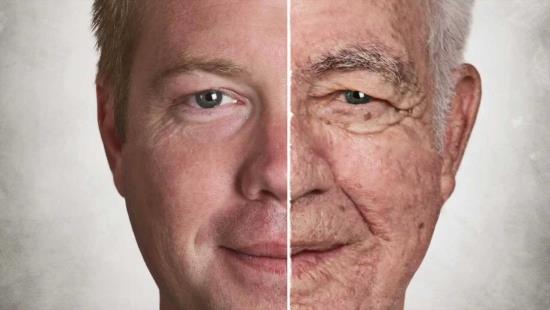New research shows that middle-aged Chinese men are more likely to age than women
Middle-aged men or more likely to age? The Chinese team completed the world's first large- scale study of NAD+ and aging in the Chinese population, revealing potential genderdifferences.
On March 21, 2022, the Chinese scientific research team published the latest clinical study on NAD+ "Association of Human Whole Blood NAD+ Contents with Aging". In this study, the experiments examined the levels of NAD+ in the blood of different populations and further explored the effect of gender on the relationship between whole blood NAD+ levels and aging. The final research results show that the relationship between human whole blood NAD+ content and aging is significantly different in men and women, and the trend of NAD+ decline is more obvious in men with age.

Aging is characterized by a gradual decline in energy metabolism and physiological functions, which are major risk factors for a variety of diseases, including cancer, cardiovascular disease, and neurodegenerative diseases. NAD+ (nicotinamide adenine dinucleotide) is a major player in aging-related diseases. The decrease of NAD+ content in human blood will significantly lead to aging, but it can promote NAD+ by supplementing NMN (nicotinamide mononucleotide) produced to improve. So far, the evidence for sex differences in human NAD+-related studies is very limited. Therefore, the purpose of this study was to explore the differences in the regularity of NAD+ changes and gender.
From 2019 to 2020, the research team randomly recruited 1,518 participants aged over 18
years without cardiovascular disease and any type of cancer from Jidong community in Tangshan, China, and divided the participants into five groups according to their chronological age: ≤29 30-39 years old, 40-49 years old, 50-59 years old and ≥60 years old. After an overnight fast, blood samples were taken from the participants' antecubital vein and NAD+ levels were determined.
The mean whole blood level of NAD+ in all participants was 33.0±5.5 μmol/L, the mean age was 43.0 years, and 52.6% were male. The five age groups differed significantly in sex, BMI, history of smoking and drinking, and history of hypertension, diabetes, and hyperlipidemia, and the prevalence of hypertension, hyperlipidemia, and diabetes increased with age.
The test results showed that the whole blood NAD+ content of men (34.5±5.4 μmol/L) was significantly higher than that of women (31.3±5.2 μmol/L) (p<0.001).
The NAD+ levels in the blood of men and women showed different trends with age. Male blood NAD+ gradually decreased with age, while female blood NAD+ showed a fluctuating trend.
For men, the NAD+ content in the blood gradually decreased with age, especially after the age of 60. In women, the NAD+ content decreased slightly with age, and fluctuated after the age of 50. This fluctuation trend of women after the age of 50 may be affected by sex hormones.
In the study, NAD+ levels in the blood of men were significantly higher than those of women, however, NAD+ declined more rapidly with age than women, especially in middle-aged men. The correlation between blood NAD+ levels and age was significantly different between males and females, and it is critical to consider gender differences in future NAD+-related
studies.
References:
[1] 庶正康訊(北京)商務諮詢有限公司、天貓國際.NMN 品類發展白皮書(2020)[R].
[2] Yang, F., Deng, X., Yu, Y., Hu, F., Wang, W., Chen, Y., ... & Guo, J. Association of Human Whole Blood NAD+ Contents with Aging. Frontiers in Endocrinology,
318. https://doi.org/10.3389/fendo.2022.829658
Note: This product cannot replace drugs/medicines, if there is any pathological disease, please seek for medical attention.



